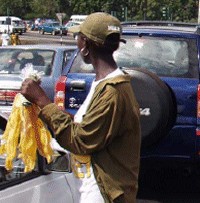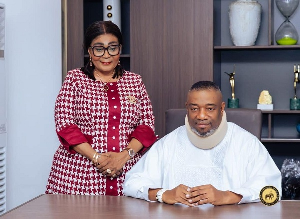Philomena Nyarko, acting Government Statistician says even though her outfit appears to be making progress towards the achievement of Millennium Development Goals (MDG) 3 (i.e. promoting gender equality and empowering women), female participation in various sectors of the economy is unbelievably low.
“This calls for re-orientation of our mindset as a people, and we believe that the production of accurate, reliable and timely data on gender for evidence-based decision making can help bring out such stark differences which will touch the hearts of decision-makers and perhaps eventually lead to the elimination of gender inequality in the country.”
Dr Nyarko, who was delivering a speech to mark Africa’s Statistics Day in Accra on Monday, mentioned that “it is worth noting that we have made some progress with respect to the production of gender statistics in this country. Since the adoption of the Platform for Action at the Fourth World Conference on women in 1995, the Ghana Statistical Service has ensured that statistics related to individuals are collected, compiled, analyzed and presented by sex and age to reflect issues and concerns related to women and men in the society.”
The celebration of Africa Statistics Day is intended to help create awareness about the important role statistics play in the development of the continent.
The day, which falls on 18th November every year, was set aside by African ministers responsible for Economic Planning and Development to give the statistical fraternity an opportunity to take stock of achievements and challenges to uphold the commitment towards achieving national, continental and global resolutions as data producers.
Commenting on the theme, ‘Making every woman and man count, engendering statistics for better development outcome,” she indicated the importance of the production and use of gender statistics in the development of nations.
“Gender equality has, for a long time now, aroused passionate discussions and brought about diverse opinions in the country.”
In 2004, she said African heads of states adopted a declaration on gender equality and have since affirmed their commitment to various international instruments that focus on addressing areas of concern to women on the continent.
“At the local level, there has been strong resolve and effort to mainstream gender into national development process with the aim of improving the social, legal, political, economic and cultural conditions of the people of Ghana, particularly those of women and children” she added.
In addition to having a gender desk and a micro data unit that responds to the gender-based data requests of users both in Ghana and beyond, she said the service also serves as the coordinator of the national gender working group made up of representatives of government institutions and agencies, research institutions and civil society organizations, the United Nations and other international organizations.
She explained that the sixth round of the country’s Living Standards Survey had entered the second month and therefore encouraged partners and households to collaborate with the field officers to ensure the success of the field data collection exercise.
Ghana will be able to evaluate her status with respect to six of the MDGs through the GLSS6.
During this round, the GLSS will provide comprehensive data on the labour force.
Business News of Thursday, 22 November 2012
Source: Daily Guide
Female Participation In Economy Low













